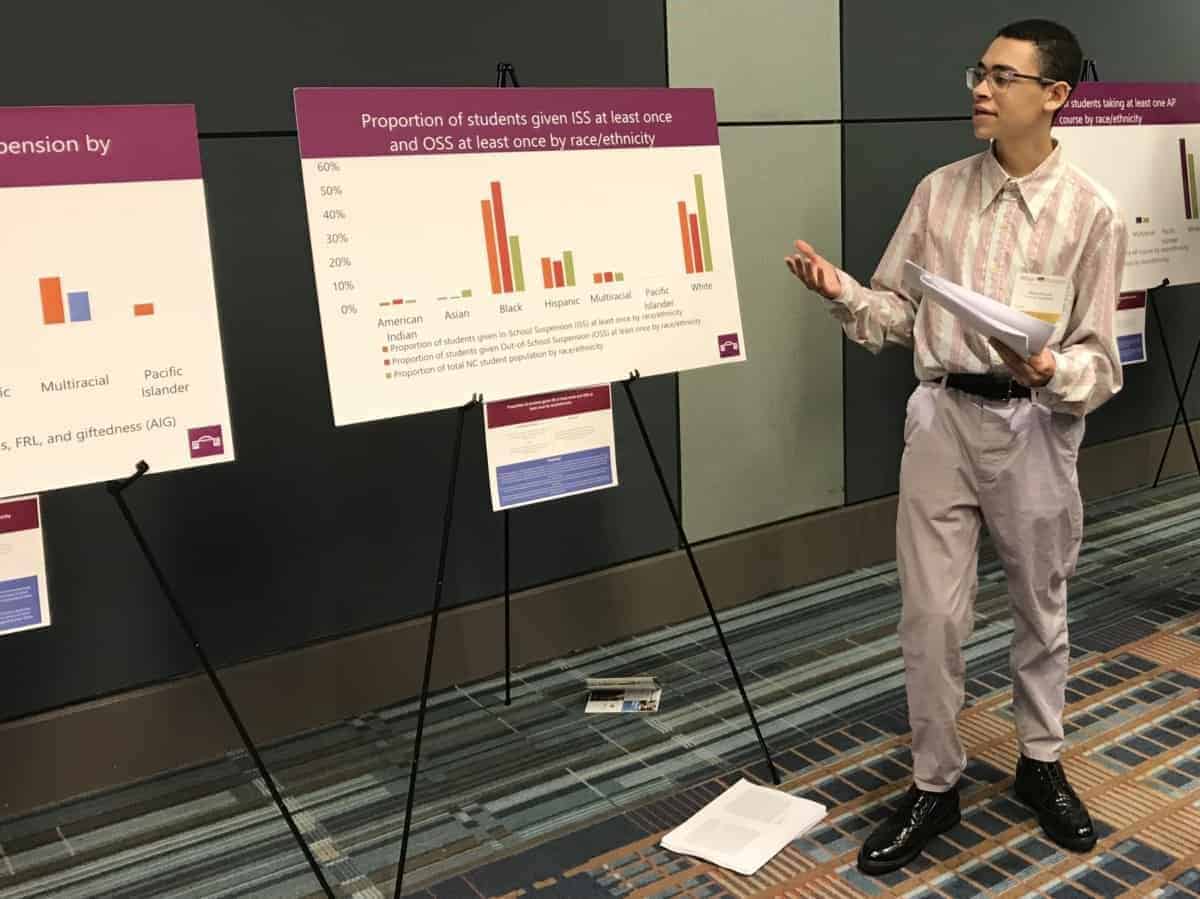
My name is Blaine Purcell. On the surface, I am a biracial, gay man, who grew up with a single mother whose income put us below the poverty line. Objectively, these are just descriptions — but the experiences that have come along with them, however, tell a much more important story.
We live in a society that is still suffocated by racism, classism, and homophobia. Our school system should be the place where this all goes away, and equal access is available for everyone, but it is not. By equal access, I mean the availability to get the same opportunities in education as everyone else regardless of who you are and what situation you come from.
Education is not fulfilling its role as a catalyst for economic mobility. There are so many students who cannot afford to get out of the terrible situations they were born into. There are kids who fall between the cracks because no one accepts them. There are kids who are failing, and the only ones to blame are ourselves. But, that is why I wrote this — so I can give you my perspective of how we can bring equity into our schools once and for all.
Treatment of low-income students and families
The first issue I’d like to address is the treatment of low-income families in the current system. This issue goes from what may seem like smallest issues to much bigger ones, but all of them need to be addressed. One of these is the issue of transportation. I’m aware this issue is due to funding, but something has to be done.
I have missed at least a week of school this year alone because my bus broke down and did not come to my stop, and even more frequently than that, I have gotten home late because we have broken down on the side of the road. Some of the buses don’t have air conditioning and/or heat, so we burn or freeze in the seasons. Our bus drivers are always late, resulting in us getting sick from standing in the winter elements and missing additional school. Without solid transportation, a large number of children cannot get an education, making this an essential area to fix within the school system.
The second part of this issue is the lack of understanding of the experiences of students in low-income situations. Twenty-one percent of all children in America live in households where their income puts them below the poverty line. Many have to babysit their siblings after school and are essentially raising them because their parents are working all the time to keep them afloat. Others are getting out of school and working until 10 p.m. or later to provide for their families, leaving them staying up late into the night trying to get homework done. Others do not even have a computer.
These kids are struggling to keep a roof over their heads and food in their homes, and then they get admonished when they get behind in school. We need to introduce altered assignments or extended deadlines for these students so their physical health does not deteriorate and their grades do not drop trying to get everything done.
In addition, we have to make sure these kids have the funds they need to pursue opportunities. Yes, a child can take a school bus and get seven hours of education everyday; but what about the field trips that are paid for? What about sports, chorus, band, or theater? Some kids cannot afford the equipment or even the clothes for some of these extracurricular activities. In today’s world just going to school does not get you into college, or into life.
Finally, I’d like to address the elephant in the room — discrimination. While we would hope our teachers would do their best to treat everyone equally, some are still prejudiced, and a great deal more struggle to overcome implicit bias. When a teacher leads with implicit bias, certain students are at a disadvantage as soon as they walk into the classroom. This then manifests itself in worse grades and scores, more suspensions, more dropouts, and less achievements as a whole for these students.
For some perspective, black students are 160% more likely to be suspended than a white student, and that is even after accounting for a number of factors such as income, gender, location, and many more. If a student does not feel comfortable in a classroom, there is no way they can be confident enough to pursue the best education they can. That is why we need to give teachers implicit bias training, so all students can come into school with the same opportunities. We have to begin take everyone’s individual situations into account so that we can give everyone the opportunity to get wherever they want to. If we look at everyone in the big picture, we can never get them what they need.
Treatment of the LGBT+ community
The second area I’d like to address is the current status of the LGBT+ community in the school system. Homophobia plagues our schools like a bad disease. Nine out of 10 LGBT+ teens reported being bullied at school in the last year. Another statistic found that, of the students who reported harassment or bullying due to sexual orientation, about one-third of school staff didn’t do anything to resolve the issue. This is a complicated situation because it is always asked: “How can we make a change as a school, and not the parent?”
My take on this is that schools are supposed to prepare children for the “real” world. This means they have to learn to be respectful to all the different types of people they will come in contact with in that world. So, by definition, we have to make sure all students are respectful and accepting. Additionally, we have to ensure all LGBT+ students are comfortable in schools. Only 26% of these students always feel safe in their schools, and they are five times more likely to miss school due to bullying. If we are not doing anything to fix this, how are we ensuring that equal access to education for everyone?
Now, how can we promote this acceptance? In my experience, the best way to do that is exposure. We don’t have any mentions in our school assemblies about the LGBT community. We don’t have functioning gay-straight alliances because kids are scared to join. We don’t have LGBT+ history in our textbooks. We, as the leaders of the future, have to learn that no one deserves less than another and that this “lifestyle” was not a choice, but that it is who we are.
In addition, we have to ensure that our teachers always promote acceptance and support LGBT+ children in their classrooms. In my years in high school, I have not only faced discrimination from students, but also teachers. My gym teacher freshman year made a derogatory comment about me having my nails painted in front of the entire gym, but this doesn’t only happen to me. Only 5% of LGBT+ students say all of their school’s faculty is accepting.
If a student cannot even feel safe with the people who are responsible for them, how can they feel comfortable with their peers? It is essential that we change this so that no LGBT student has to miss school because they do not want to hear the slurs. So none of them have to be scared to go into the bathroom or locker room, and so none of them have to experience terrible mental health issues that make life seem unlivable.
In my opinion, those are just a few of the ways we can bring equity into our schools, but I hope that is not all you take away from this. You can never begin to solve an issue until you recognize there is one. Regardless of your opinions on my proposed ideas, I have shown you that there is in fact an issue.
Now that we know this is a problem, all we need to fix it is the will to do so. We have to be willing to help our LGBT students feel comfortable. We have to be willing to help our low-income students succeed. We have to be willing to ensure equality for every child in our education system. And that will is what I hope you take away from what I’ve shared.
